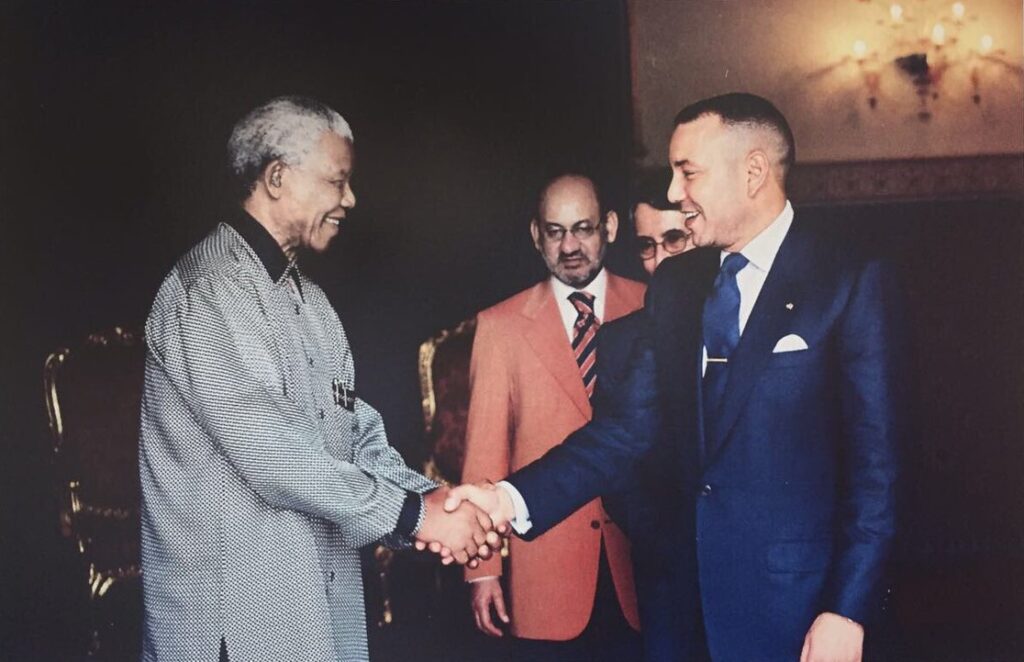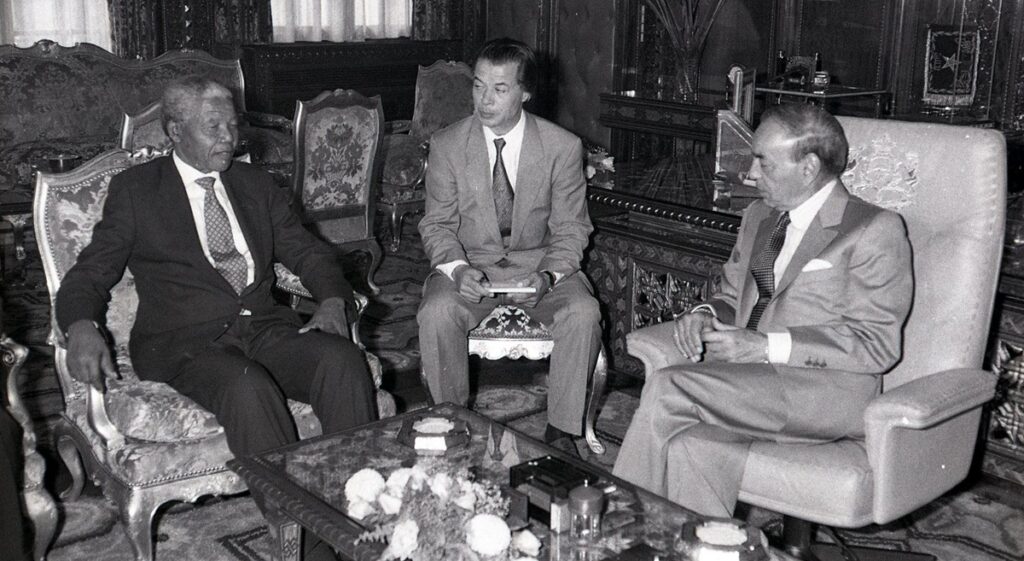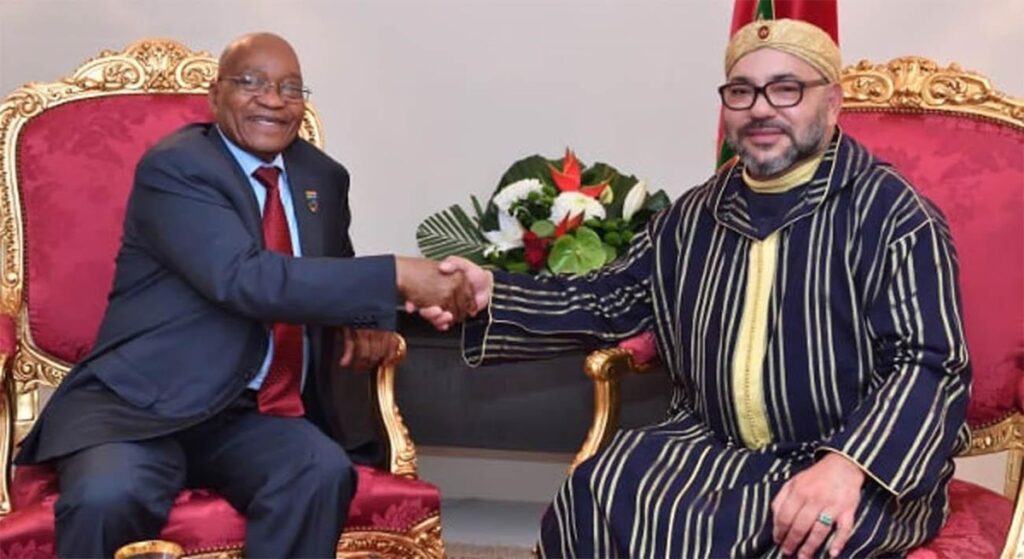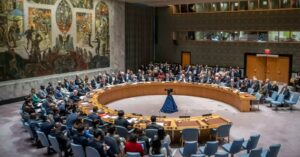Morocco-South Africa Relations: Between the Stakes of Regional Competition and the Potential for Cooperation

The study of bilateral relations between states constitutes an essential entry point for understanding the complex transformations in the international system, particularly in light of the ongoing restructuring of alliances and radical changes in the balance of economic and political power the world is witnessing today. In this context, Moroccan-South African relations stand out as a model reflecting multidimensional dynamics that combine political, economic, and strategic considerations, as well as historical dimensions that have played a pivotal role in shaping the course of this relationship. The analysis of these relations comes at a time when the African continent is facing increasing security and economic challenges, which calls for the search for mechanisms for cooperation and understanding between the major powers within the continent. By studying this relationship, it is possible to deepen understanding of the two countries' positions on regional and international issues, in addition to highlighting the factors of divergence and convergence that reflect the nature of cooperation or competition between them. This study also allows us to monitor developments shaping new models for South-South relations, as these dynamics play an increasingly important role in redrawing the map of influence within the African continent. Ultimately, this research seeks to provide a comprehensive vision of the prospects for future cooperation between Morocco and South Africa, in light of the global and regional challenges that require African countries to unify efforts to effectively confront them.
1- The historical framework of Moroccan-South African relations
DMorocco's involvement in liberation movements in Africa: historical backgrounds and contexts
Moroccan-South African relations date back to the struggle against colonialism and apartheid. Since the early days of independence, Morocco has been involved in supporting liberation movements on the continent, including the African National Congress, which led the resistance to apartheid in South Africa. This support included providing military and political training to party cadres, as well as financial and logistical support.
Nelson Mandela's visit to Morocco in 1992, shortly after his release from prison, was a highly symbolic moment, as he was keen to thank King Hassan II for the kingdom's continued support for his people's cause. At the time, hopes were pinned on building a strong partnership between the two countries, combining a shared history and unified African aspirations.

The roots of Moroccan-South African relations are not limited to the modern context of the twentieth century, but extend deep into history, to the era known as medieval Africa, specifically to the "Western Sudan" region during the period extending from the eleventh to the sixteenth centuries. These historical and spiritual ties formed fertile ground for cultural and commercial interaction between the north and south of the continent. Within this framework, the support provided by Morocco to the liberation movement in South Africa during the apartheid era can be understood not as a circumstantial diplomatic choice, but rather as a natural extension of a deeply rooted historical and value system that believes in African liberation and solidarity.
The relationship between Morocco and South Africa was shaped by a historical context marked by national liberation movements on the continent. Morocco emerged as one of the most prominent supporters of these movements, most notably the African National Congress (ANC) during the colonial era. Rabat was among the first African capitals to express genuine solidarity with the struggle of the African peoples against colonial regimes and apartheid. Historical documents indicate that Morocco embraced the party's fighters and provided them with military training, as part of its direct political and military support for party leader Nelson Mandela and his comrades. This support was not merely a circumstantial stance, but rather an expression of a firm strategic commitment to the spirit of African solidarity, which strengthened Morocco's position as a reliable partner in the struggles for liberation and independence within the continent.
The roots of the diplomatic rift over the Sahara issue
After an initial phase of symbolic rapprochement between Morocco and South Africa, particularly following Nelson Mandela's visit to Rabat in 1992 to thank the late King Hassan II for the political, military, and financial support the Kingdom provided to the African National Congress during its years of struggle, this visit was seen as a promising sign of the beginning of a new phase of cooperation between two countries considered among the most important geopolitical poles in North and South Africa. However, the prospects of this rapprochement did not translate into a sustainable strategic partnership, as relations were soon marred by significant political tension, culminating in Pretoria's decision to recognize the so-called "Sahrawi Arab Democratic Republic." Morocco considered this an unjustified bias toward an entity not recognized by the United Nations, a position that contradicted the principle of neutrality, and a lack of balance. Rabat responded by suspending diplomatic relations with Pretoria, plunging relations between the two countries into a state of political stagnation and ongoing diplomatic tension.
Since that date, South Africa has become one of the most prominent supporters of the secessionist thesis in African forums, based on an ideological anti-colonial background, without taking into account the changes taking place in the Western Sahara issue at the international level. This tension has been reflected in bilateral coordination within continental organizations, with Pretoria adopting anti-Moroccan positions within the African Union, which has contributed to deepening the rift between the two sides.
Despite Morocco's return to the African Union in 2017 and an attempt to achieve a breakthrough in relations through a meeting between King Mohammed VI and President Jacob Zuma on the sidelines of the Addis Ababa summit, the rapprochement remained limited and did not develop into a full normalization of relations. This highlights the continued impact of the political dispute over the Western Sahara issue in obstructing any strategic partnership between the two countries.
2- Diplomatic competition and geopolitical trends
The Moroccan-South African rivalry in Africa reflects differences in approaches to political and diplomatic influence, with each side employing "soft diplomacy" tools to consolidate its presence on the continent. While Morocco relies on a holistic vision based on South-South cooperation, the activation of investment-based development partnerships, and the strengthening of cultural and religious ties, South Africa relies on its combative record, economic strength, and traditional position as a prominent player in the "Global South" bloc.
This rivalry is clearly evident within the African Union, where South Africa supports the pro-Polisario Front positions, while Morocco is working to consolidate the legitimacy of its position on the Sahara issue, with growing support from Western and Central African countries. The two countries' divergent positions on major international issues are also evident, including relations with Western powers, engagement with Chinese and Russian influence, and differing security visions for the Sahel and Sahara region.
3- Moroccan-South African Economic Exchange: Challenges and Opportunities
Despite political tensions, economic trade between Morocco and South Africa is registering significant levels, with Pretoria being one of Rabat's important trading partners in sub-Saharan Africa. Trade reached approximately 1.4 billion dirhams in 2023, primarily comprising Moroccan imports of chemicals and minerals, and exports of phosphates and fertilizers. In 2024, trade relations were balanced, as Morocco continues its strategy of economic expansion within the continent, despite the two countries' differing political positions. Morocco imports coal and minerals from South Africa, while Moroccan companies operating in the telecommunications, banking, and insurance sectors are seeking to penetrate the South African market.
The energy sector also represents a promising area of cooperation between the two countries, especially in light of the global shift towards renewable energy. Both Morocco and South Africa could develop joint projects in the fields of green hydrogen and solar energy.
However, these potentials remain contingent on an improvement in the political climate and the establishment of a partnership based on shared interests rather than ideological backgrounds or regional alignments.

4- Possible Convergence: Common Challenges and Opportunities for Strategic Convergence
Foreseeing the future of Moroccan-South African relations requires a pragmatic reading of the current African reality, which faces significant challenges such as poverty, climate change, violent extremism, and institutional fragility. These realities compel major regional powers, such as Morocco and South Africa, to adopt effective cooperation strategies instead of continuing the fruitless competition that hinders development and stability.
In this context, clear signs have begun to emerge of a relative shift in South Africa's position, particularly regarding the Western Sahara issue. Official rhetoric has softened and diplomatic positions have become more restrained, compared to the past two decades. This partial shift is due to a growing awareness among South African political and economic elites of the importance of strengthening cooperation with Morocco, given the latter's growing economic and institutional role on the continent.
Morocco's expanding influence in African organizations and the building of strategic partnerships with a number of African capitals have forced South Africa to reassess the feasibility of political escalation, particularly in light of the internal economic pressures facing Pretoria and its need to open economic channels with new partners in North and West Africa.
Recent developments in the Western Sahara issue and the growing support for Morocco's position within the African Union provide room for South Africa's diplomatic repositioning to achieve balance in bilateral relations and enhance opportunities for building a solid African partnership based on economic and political integration.
conclusion
Moroccan-South African relations reflect the complexities of the current African landscape, where geopolitical interests intersect with historical legacies and ideological differences. However, the transformations taking place within the continent and globally are opening new horizons for rebuilding this relationship on the foundations of cooperation and partnership. Overcoming these obstacles requires genuine political will and joint investment that serves development and stability issues, while emphasizing that regional rivalry should not become an obstacle to building a united Africa capable of strengthening its position in the international system.
Resolving differences between the two countries remains contingent on a pragmatic dialogue based on shared interests, respect for Moroccan sovereignty by not interfering in Rabat's internal affairs, and the protection of Morocco's territorial integrity. This requires South Africa to abandon its support for the Polisario Front, which constitutes a major obstacle to achieving a sustainable diplomatic balance. The future of relations depends primarily on a bilateral political will capable of objectively anticipating regional transformations and adhering to the continent's interests in development and stability.





